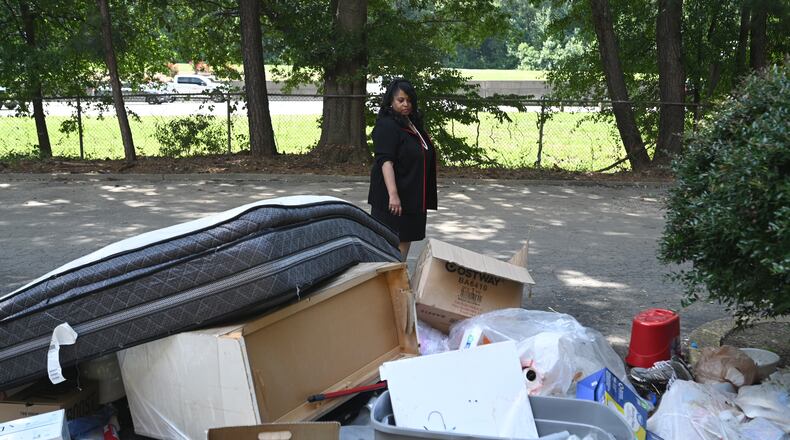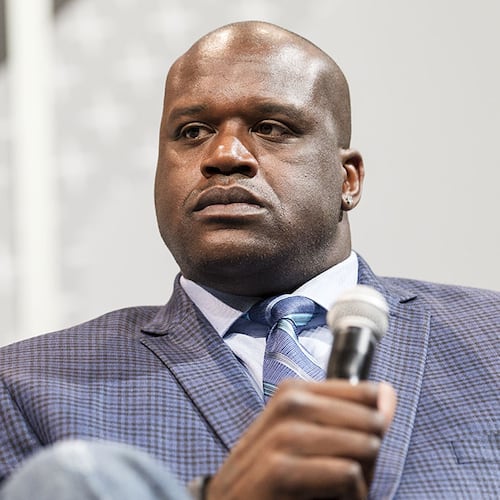Atlanta’s lawmakers are considering new legislation that would support tenants and address code violations at multifamily properties.
City Councilwoman Andrea Boone introduced legislation Monday night that would create a housing assistance center using $600,000 from the city’s affordable housing trust fund. According to her resolution, the Housing Help Center would have full-time experts available to help residents obtain resources for affordable housing.
Boone’s resolution mentions plans for the center to track the status of the city’s affordable housing needs and availability. It also mentions the need for partnerships with other agencies, both public and private.
Additionally, City Councilman Byron Amos introduced an ordinance that would allocate $800,000 to the city solicitor’s office. According to his ordinance, the proposal would fund staffing for the city’s code enforcement investigators, who are tasked with reducing blight and nuisance properties.
The solicitor’s office says the property crackdowns will involve “costly and complicated” litigation because most of the nuisance properties are owned by both corporate and individual out-of-state entities, according to the ordinance. As such, the solicitor wants to use the funds for several legal actions, from housing code violations to judicial in rem actions.
“At the end of the day, it’s not profitable to operate substandard housing in the city,” said Joshua Humphries, the mayor’s senior housing policy advisor. “It’s about a balance of creating adequate enforcement, but also creating adequate resources for properties to be improved.”
Humphries said Tuesday that the center would be at City Hall, where four new staffers and a new website would help residents navigate through the various housing programs available from the government and other entities.
Humphries also said the funding would let Atlanta hire more code enforcement investigators. He said doing so would help prevent situations like Forest Cove, an apartment complex that was condemned by a judge due to a mountain of code violations.
Credit: Daniel Varnado
Credit: Daniel Varnado
Atlanta and Fulton County prosecutors have voiced plans to crack down on at least 43 complexes after The Atlanta Journal-Constitution published a year-long investigation on unsafe and unsanitary apartments in metro Atlanta last year.
Following the AJC’s ‘Dangerous Dwellings’ series, Dickens created a so-called “Safe and Secure Housing Program” to actively track all multifamily properties citywide, identifying and addressing the city’s blighted properties.
According to the mayor’s office, the two proposals would use the remaining $1.4 million from the city’s new affordable housing trust fund for the current fiscal year, which ends June 30.
Credit: Natrice Miller / Natrice.Miller@ajc.com
Credit: Natrice Miller / Natrice.Miller@ajc.com
Atlanta’s new legislative proposals come as Mayor Andre Dickens continues his efforts to build and preserve 20,000 affordable units by 2026. Dickens announced this month that the city and the Community Foundation for Greater Atlanta will invest $200 million into housing. The foundation is putting up $100 million, and city council will likely vote on a new $100 million housing bond next month.
However, housing advocates are still criticizing Dickens for not allocating 1.5% of the budget ― $11 million ― to the trust fund. Dickens allocated $7 million to the trust fund last year, and he wants to put $8 million into the trust fund for fiscal year 2024, which begins July 1.
Atlanta’s biggest investment with the trust fund thus far was a $4.5 million allocation to Invest Atlanta to support affordable housing construction on land owned by churches and faith-based groups. Atlanta used the fund to acquire MARTA-owned land for a downtown housing project, as well.
Additionally, City Council used the money to help fight food insecurity, to create an eviction relief fund, and to support affordable housing in Grant Park. The city also used the money to fund the Metro Atlanta Land Bank Authority’s preparation efforts for more housing development; to support Westside housing construction; the homeless; and emergency home repairs for legacy residents.
About the Author
Keep Reading
The Latest
Featured



